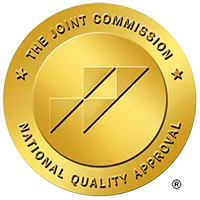As it is often said in the addiction treatment profession, there is a clear separation between abstinence and sobriety. Abstinence can be defined simply as physical free from mind-altering substances. Abstinence doesn’t address behaviors, emotions, mental health, etc. It just means that the person is free of drugs/alcohol. Sobriety includes abstinence, but also encompasses much more than just stopping drinking or abusing drugs. Read and find out why sobriety is the more rewarding and effective method to stopping addiction, and why abstinence is just the bare minimum solution.
Is Abstinence Enough?
In our addiction, many addicts and alcoholics develop unhealthy or negative habits and patterns that go beyond the drugs/alcohol. Perhaps we become dishonest, self-seeking, or reckless. We may say things or do something at the expense of others. The point is that we develop personality traits and behavioral patterns that are not directly a result of addiction. These character defects and selfish tendencies become part of our daily life. We may use them to get what we want or manipulate others. The emotions and feelings of others are cast aside in order to maintain our drug/alcohol habit and lifestyle.
Quitting drugs/alcohol will not completely remove the negative and selfish habits from our addiction. Some people think that when they put down the drugs, they will become this wonderful and admirable person. This is often not the case. In fact, sometimes those negative habits and tendencies get worse when a person stops using drugs. Why is this? During our addiction we used drugs or alcohol for many reasons; to escape, numb emotions, relax, find relief, etc. Once we stop the drugs/alcohol, our greatest coping mechanism (our addiction) has disappeared. Simply, we don’t have the experience, resources, or ability to handle life’s problems and stresses. Without substances to find comfort in, a person may resort to dishonesty, verbal abuse, anger, over-eating, compulsive shopping, co-dependency, etc. to find relief from the realities of life. Abstinence is not enough because it does not replace drugs and alcohol with a solution to face and handle life in a healthy way. On the other hand, sobriety is about finding a new way of living to replace our old life in addiction.
Sobriety: A New Way of Living
The main difference between abstinence and sobriety is that the latter includes a program for self-growth and actualization. Sobriety comes in many different shapes and sizes. There are recovery groups and therapy. These are both great ways to continue to learn about yourself and to get support from others who care about you. There are also other ways to get involved in sobriety, such as searching for spirituality and learning how to meditate. Even simple things such as exercise and reading can help replace some of those negative habits with healthy new habits. Sobriety is about learning how to be a good friend, a loving son or daughter, and a real member of society. Sobriety is about learning how to deal with emotions like pain, embarrassment, disappointment and emerging stronger afterwards. Living life sober, we are given a new lease on life and we have the chance to dramatically change our path. If you are just abstaining from drugs/alcohol and are not actively living sobriety, you are missing out on the true rewards of recovery.
Original Article re-printed here with permission from AddictionLand.com
Red Rock Recovery Center is a Colorado state licensed substance abuse extended care treatment program designed to help you or your loved one recover from the struggles associated with alcoholism and drug addiction. Located in Denver, Colorado we offer a safe haven for those afflicted by the ravages of untreated addiction. Our program is based on a compassionate 12-step model that applies behavioral as well as life skill therapies, which will enable our clients to heal and recover.
#recovery #drugrehab #redrockrecovery




